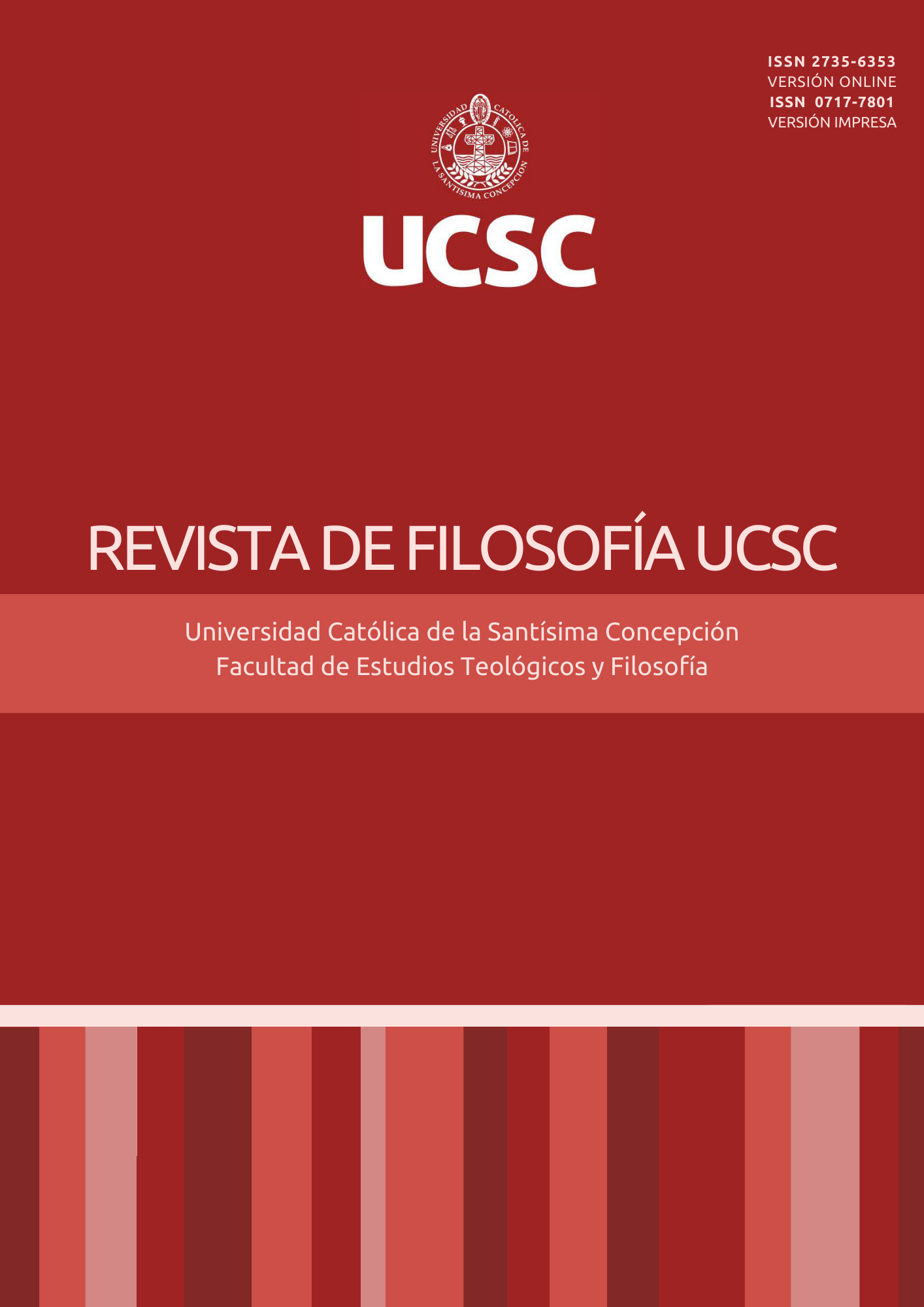In regard to the Contemporary Relevance of Thomism: The case of the concept of Analogy in Hermeneutics
Main Article Content
Abstract
El thought de Santo Tomás has found relevance tanto in philosophy como in theology. It has done so because both disciplines have become hermeneutical, without neglecting ontology. The reason is that in both, a great deal of interpretation is used, as they deal with texts, both from philosophers and from the Holy Scriptures. This will address what could be an application of Thomism to the philosophy of language from the perspective of hermeneutics. This will benefit philosophy in general, that of our time. This will demonstrate the relevance and validity of Thomism today.
Downloads
Metrics
Article Details

This work is licensed under a Creative Commons Attribution-NonCommercial 4.0 International License.
The Revista de Filosofía UCSC is an open access journal and does not charge for publication. In addition, it regulates its Copyright and access policy according to the Creative Commons Attribution-NonCommercial 4.0 International Public License (CC BY-NC 4.0), therefore sharing (reproducing and distributing the material in any medium or format) and adaptation (modifying, transforming, and creating from the material) is allowed as long as proper credit is given and the citation is included with the corresponding data. Moreover, it is not allowed to use the material for commercial purposes.
References
Aquino, T. (1889). Piae preces. En F. Fretté y P. Maré (Eds.), Opera omnia (Vol. 32, p. 822a). Parisiis: apud Ludovicum Vivès.
Aquino, T. (s.f). In I Sent. En: https://www.corpusthomisticum.org/snp1019.html
Beuchot, M. (2019). Tratado de hermenéutica analógica. Hacia un nuevo modelo de la interpretación. UNAM.
Bochenski, I. (1948). On Analogy. The Thomist, 11, 474-497.
Bochenski, I. (1975). Lógica de la religión (Saad Chedid, Trad.). Paidós.
Cárdenas, A. (1970). Breve tratado sobre la analogía. Club de lectores.
Conde-Gaxiola, N. (2006). El movimiento de la hermenéutica analógica. Primero Editores.
Gadamer, H. (1977). Verdad y método. Fundamentos de una hermenéutica filosófica. Sígueme.
García-González, D. (2001). Hermenéutica analógica, política y cultura. Ducere.
Hibbs, T. (1993). MacIntyre’s Postmodern Thomism. The Thomist, 57, 277-297.
Jakobson, R. (1986). Lingüística y poética. En Ensayos de lingüística general (p.389). Artemisa.
López-Santamaría, J. (2022). La ética de las virtudes. Estudios Filosóficos, 57(164), 145–151. Recuperado a partir de https://estudiosfilosoficos.dominicos.org/ojs/article/view/1045.
Montmarquet, J. (2011). Virtud epistémica. En M. M. Valdés y M. Á. Fernández (comp.), Normas, virtudes y valores epistémicos. Ensayos de epistemología contemporánea (p.299). UNAM.
Paz, O. (1991). Los hijos del limo. Del romanticismo a la vanguardia. Seix Barral.
Ramírez, I. (1970). De analogía. CSIC.
Secretan, P. (1984). L'analogie. PUF.
Vio, T. (1953). De nominum analogía. Institutum Angelicum.




